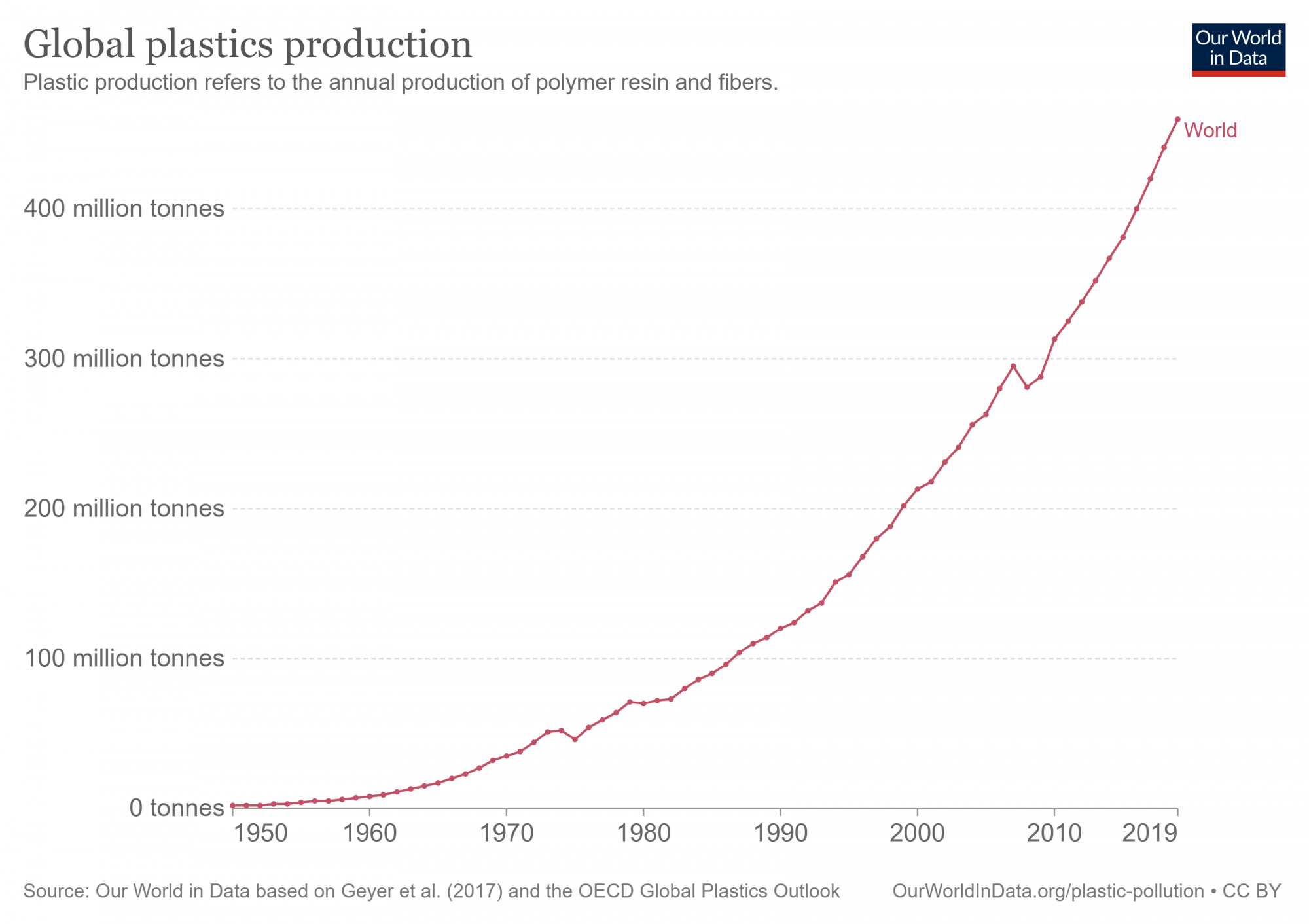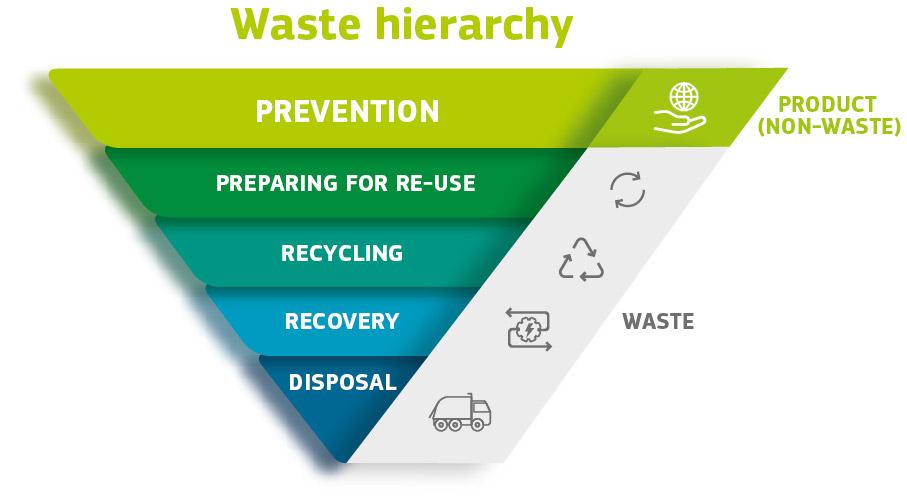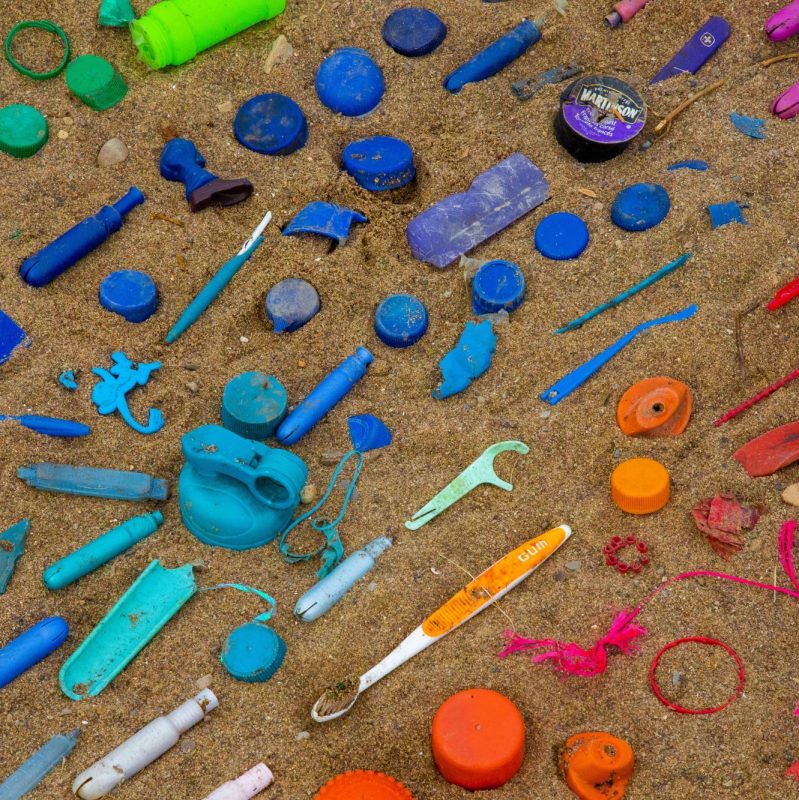AUTHOR’S CORNER
We need to talk about plastics
07.11.2022
by Natasa Papangelou
SHARE
“Do you think that when I get the recyclable garbage down, I actually throw it in the blue bin? HA!” That was my brother during one of our fights when we used to share an apartment as students in Thessaloniki.
The horror! He’d take a full bag of plastics and throw them into the normal bin. Or so he’d tell me to infuriate me – successfully.
Flash-forward to 15 years later, I live in another country and recycling is an established routine for everyone I know. Yet, plastics are everywhere: in rivers and lakes, in the ocean, in the food we eat and the water we drink.

Why? Could it be that recycling is not the perfect solution to the problem of plastics?
And if not, what is?
Should we recycle more?
I am actually a recycling-nerd and a huge proponent of appreciating our waste. The truth is, though, that recycling has a better reputation than actual environmental benefits. First, although recycling can save primary (virgin) resources, it does so at a cost: recycling consumes energy and chemicals. More importantly, most of the plastic produced is never recycled, either because it never reaches a recycling bin, or because it is part of composite materials that are hard to separate, or due to contamination of the stream in the bin, e.g. by food waste or non-recyclable plastics. Contaminated streams and composite materials are cheaper and easier to be landfilled or incinerated, which is what eventually happens to them. And even when plastics reach the recycling plants, they cannot be recycled infinitely. The quality of materials deteriorates with recycling, and many plastics can give a recycled material of acceptable quality only once.

Recycling gets a lot of attention in environmental campaigns and advice for leading more environmentally-friendly lifestyles, especially since the concept of Circular Economy has been introduced in policy and research. Interestingly, though, recycling is low at the waste hierarchy. Prevention, reuse and refurbishment are considered more effective strategies, yet they usually receive less attention, because these strategies require lifestyle changes, rather than “better” technology. But is it really that hard to imagine our current supply systems with less plastics and more reusable materials? Are the consumers to blame, really, and their addiction to the convenience of single-use plastics?
Should we buy less plastic?
This narrative of the “consuming society”, or the “throw-away” society that is the root of all evil has become ubiquitous in environmental discourse. When it comes to plastics, it is actually our empty cola and water bottles, bags and plastic paraphernalia of all sorts that are washed into the ocean, all these things that result from our everyday activities. What if we slightly change the question, though, and ask not who produces the waste and why, but who produces the plastic and why?
It is not citizens, but companies that push incredible amounts of plastics into the market, while rolling the responsibility of their management onto society. If, for example, we could buy soft drinks only in glass bottles, which then would have to be returned and reused, the company producing the soft drink would bear the responsibility for its packaging material: its collection, transport, cleaning and reuse. But if, as is the case now, cola comes in single-use plastic bottles, the responsibility for the management of these bottles is shifted to society – citizens and municipalities. And although single-use material is convenient, the idea of single-use items had to be honed into the psyche of a frugal society just coming out of a world war in the ‘50s. When the news broke that all this convenient single-use plastic is polluting and threatening ecosystems, recycling came to the rescue. As long as there is recycling that supposedly prevents plastics from leaking into ecosystems, there is no need to stop producing them. Recycling has become an indispensable part of today’s supply chain of plastics, and their production continues to soar, despite all the accumulated knowledge on their environmental impacts.
A telling example is the increase in plastic production during the beginning of the COVID pandemic. An easy explanation for the increase would be that it was due to a higher demand for single-use items. However, researchers have pointed out that the increase was mostly due to falling oil prices, which made primary plastic cheaper than recycled one or other materials.
Should we just stop recycling?
I definitely don’t want to discourage anyone from recycling – and I still haven’t forgiven my brother for throwing recyclables into normal garbage. If you use plastics, do recycle them. If you recycle, do get informed about what exactly you can recycle, so that you don’t contaminate the stream and don’t contribute to its diversion to the landfill. If you can afford it (money and time-wise) do try to use and reuse less plastic (bottles, bags, packaging).
But also, get informed about the policies of the people you vote for, and support organizations that are trying to hold big companies accountable for the pollution they cause
Let’s not forget that we are more than just consumers; we are citizens.
Sources: Inspiration – Liboiron, M., and Lepawsky, J.: Discard Studies. Wasting, systems, and power. MIT press, 2022 [1] https://ourworldindata.org/ [2] European Commission, Waste Framework Directive

RELATED ARTICLES

Climate crisis causes severe respiratory problems
During the recent European Respiratory Society (ERS) congress, top lung experts explained how climate change affects our breathing and health.

A single role does not define us
Software Engineer, CTO or Volunteer Managing Director? How about everything?

Archive
Find all our past articles chronologically organized in our archive.
CONTACT US
____________
greekwomeninstem@gmail.com
Do you have ideas, questions, comments or special requests?
Would you like to highlight your research project or nominate a researcher that you would like to learn more about?
Please write to our email or fill out the form and hit “send”. We will be happy to talk with you!
[contact-form-7 id=”44″ title=”Contact form 1″]

